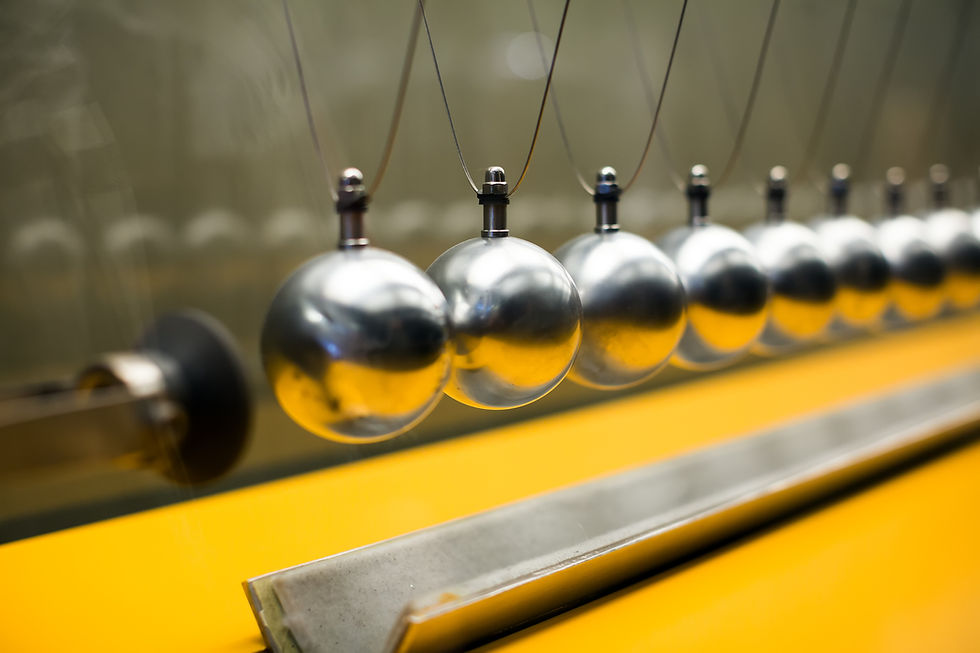Is Time Travel Really Possible?
- Samir Tusneem

- Feb 4, 2021
- 3 min read
Updated: Mar 4, 2021

How cool would it be to be able to travel back in time to any point in our world’s history? Whether it is all the way back to the dinosaur age or just two days ago, it is pretty safe to say that the innovation of time travel would forever revolutionize the way our world works today. Scientists would be able to easily gather data and information regarding historic events, and we would all be able to have accurate depictions of what actually happened two-hundred years ago. However, how likely is it that we humans will actually crack time travel?
In order to fully understand time travel, it is important to acknowledge the basis of it. More than 100 years ago, a famous scientist by the name of Albert Einstein came up with an idea about how the concept of time actually works; he called it relativity. According to this theory, time and space are linked together, and our universe has a speed limit: nothing can travel faster than the speed of light. The theory ultimately suggests that the faster you are able to travel, the slower you will experience time, and this concept has been proven by scientists.
In fact, it is important to note that this effect occurs in GPS satellites, which orbit about 12,551 miles above the Earth’s surface. Due to time dilation, the clocks on the satellites, which are considered highly accurate, gain an average of 38 microseconds every day. As small and insignificant as this increment seems, these satellites rely on their clocks to maintain precise global positioning.
So why exactly haven’t we been able to succeed in moving back in time? The simple answer is because we lack the speed necessary to do so, specifically velocity. For us to be able to travel into the future, we would have to utilize drastic measures such as the gravitation acceleration from black holes or just sending a traveler into space at the speed of light. According to Einstein’s equation, an object traveling at the speed of light would have an infinite mass and a length of 0, which seems physically impossible. Although some scientists allege that achieving these conditions may be possible, our current technology does not necessarily enable us to do that.
Another possibility that scientists have considered is the creation of wormholes between points in space-time. Einstein’s equations do certainly provide reliability for such innovation, but scientists have actually not been able to observe these wormholes yet, and the technology needed to do so is far beyond what we possess today.
If we were able to crack time travel, what would it feel like? Cracking time travel would create deviations in the experiences that the travelers and observers feel. The passenger, on one hand, would feel significantly slowed time even though they would be traveling at speeds of two hundred million meters per second. However, the time traveler would come back to find out that those who stayed on Earth had aged at a significantly faster rate. To put this into perspective, picture yourself traveling on an airplane; it feels no different than standing still on the ground, yet we are moving much faster than it seems.
There is no doubt that the concept of time travel is mind-boggling, and there are many different theories suggesting ways for time travel to be done. However, it is important to understand that time travel is indeed possible, but we simply just do not have the resources to do it. Time travel requires speeds that near the speed of light itself, which in our current day is nowhere near possible, but this doesn’t mean that it will be impossible forever.
Sources
Howell, Elizabeth. Time Travel: Theories, Paradoxes & Possibilities. 14 Nov. 2017, www.space.com/21675-time-travel.html.
---. “Time Travel: Theories, Paradoxes & Possibilities.” Space.com, Space, 14 Nov. 2017, www.space.com/21675-time-travel.html.



Comments